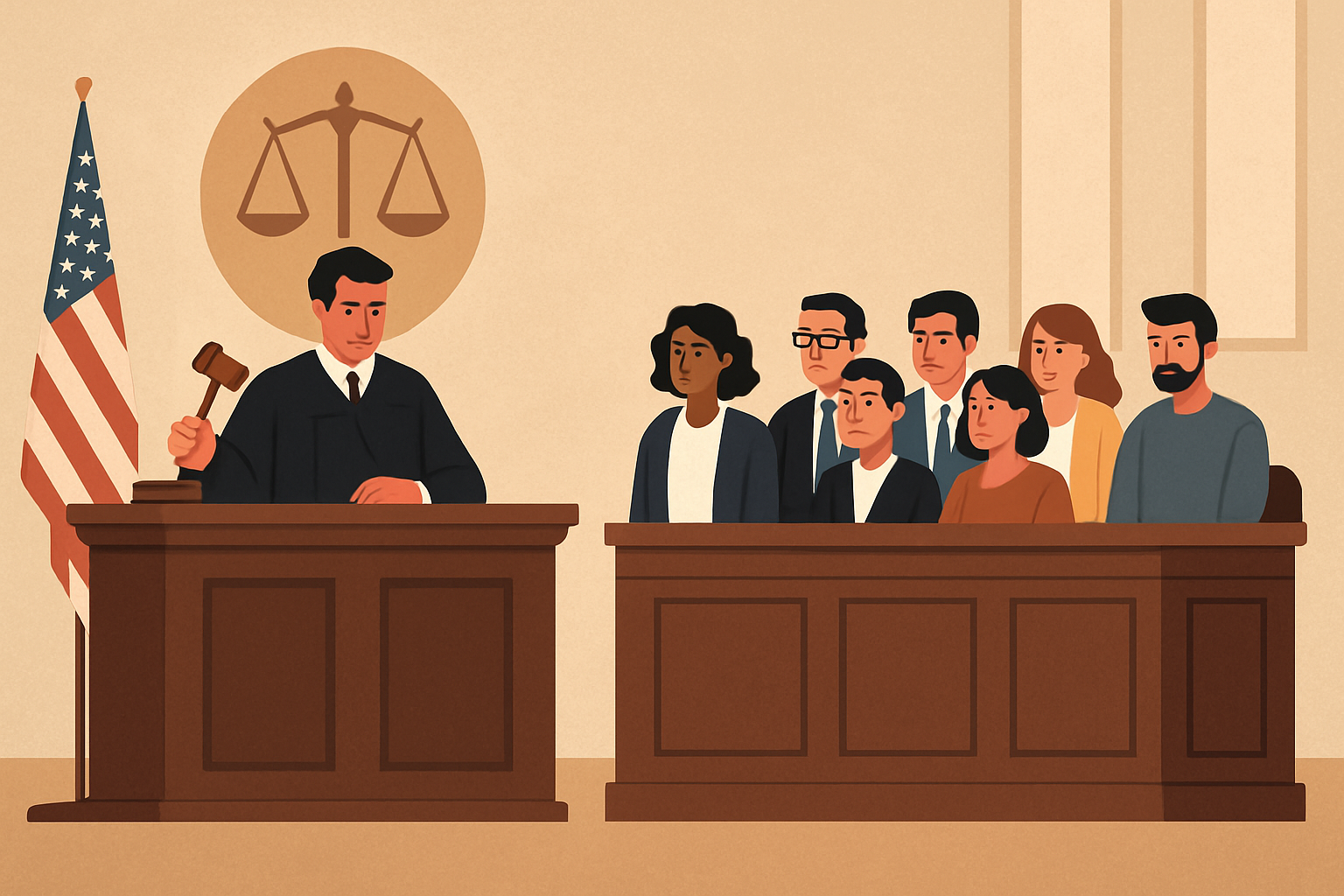
When a civil case goes to trial in Texas, both the judge and the jury play critical but very different roles. Understanding how responsibilities are divided can help parties better appreciate what to expect in the courtroom.
The Judge’s Role
In a Texas civil jury trial, the judge acts as the neutral referee and guardian of the legal process. The judge:
● Manages the proceedings: The judge controls the schedule, rules on motions, and ensures the trial runs efficiently and fairly.
● Decides questions of law: Judges interpret and apply the Texas Rules of Civil Procedure, the Texas Rules of Evidence, and substantive legal standards. If there is a dispute about whether certain evidence is admissible, the judge decides.
● Instructs the jury: Before deliberations, the judge provides the jury with written instructions and definitions that explain the law applicable to the case. These instructions frame the legal boundaries within which the jury must make its decision.
● Rules on post-trial matters: After a verdict, the judge enters judgment, and may also rule on motions for a new trial, remittitur (adjustment of damages), or other post-trial relief.
The Jury’s Role
The jury in a Texas civil trial serves as the fact-finder. Its responsibilities include:
● Evaluating the evidence: Jurors hear testimony, review exhibits, and assess credibility.
● Determining the facts: The jury resolves disputed factual questions, such as whether a contract was breached or whether negligence occurred.
● Applying the law to the facts: Using the judge’s instructions, the jury answers specific questions (called “jury questions” or “special issues”) that ultimately form the basis of the court’s judgment.
● Reaching a verdict: In most Texas civil cases, a verdict requires agreement of at least 10 of the 12 jurors.
Why the Division Matters
This division of roles reflects a fundamental principle of the American legal system: judges decide the law, juries decide the facts.
● Parties cannot ask a jury to interpret statutes or rules — that’s the judge’s responsibility.
● Likewise, a judge cannot weigh in on which witness is more credible — that’s the jury’s exclusive domain.
By maintaining this balance, Texas courts safeguard both the predictability of the law and the fairness of community-based fact-finding.
✅ Takeaway: In a Texas civil jury trial, the judge ensures the trial follows the law and provides the legal framework, while the jury listens to the evidence and determines the facts. Both roles are essential, and together they form the foundation of civil justice.
At David C. Barsalou, Attorney at Law, PLLC, we help clients navigate business, family, tax, estate planning, and real estate matters ranging from document drafting to litigation with clarity and confidence. If you’d like guidance on your situation, schedule a consultation today. Call us at (713) 397-4678, email barsalou.law@gmail.com, or reach us through our Contact Page. We’re here to help you take the next step.